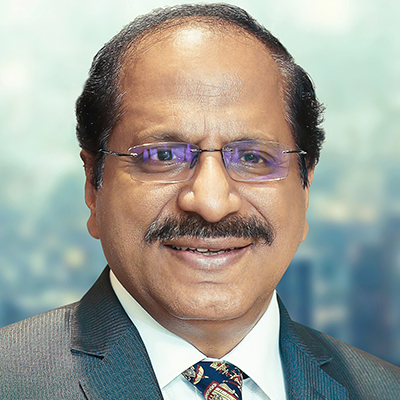Ways to Rethink Education and Prepare the Future Workforce | V.P. Nandakumar | MD & CEO | Manappuram Finance
 The traditional paradigms of education, based on the basic principles of rote learning and standardised testing, may prove inadequate in developing a workforce that would shine in an era characterised by rapid technological advancements and dynamic economic landscapes. The modern employee needs to possess more than just technical skills – he needs the ability to think critically and be adaptable.
The traditional paradigms of education, based on the basic principles of rote learning and standardised testing, may prove inadequate in developing a workforce that would shine in an era characterised by rapid technological advancements and dynamic economic landscapes. The modern employee needs to possess more than just technical skills – he needs the ability to think critically and be adaptable.
An employee’s learning curve has to be built around navigating the challenges of the corporate world. Apart from learning on the job, an employee has to be provided with knowledge to allow him to think critically and enable him to elevate his performance.
Organisations can give a chance to the employees to learn at globally recognised universities and educational institutions. In the modern-day global educational eco-system, technology has become an effective enabler for learning through special programmes for employees. Such programmes give the employee modern resources and expertise to compete with others. They help employees to re-skill or upskill themselves and thereby face technological disruptions in business.
Collaborative learning programmes
Technological changes are not only reordering the industries but also reaffirming the way we learn. It offers new ways of knowledge delivery through digital tools and platforms, thus making education personalised, flexible, and accessible. From AI-enabled learning platforms to virtual classrooms, these could democratise education as anyone from anywhere can learn new skills.
Global educational institutions leverage the power of technology to enhance learning. They offer employees special access to some of the most current state-of-the-art resources and expertise through collaborative educational programmes. These programmes equip employees with the latest tools and trends shaping industry. Employees are enabled to devote more attention to solve complex problems and encouraged to think critically. Resultantly, these employees then foster an environment that encourages inquiry, creativity, and innovation. They question existing assumptions, explore new ideas, and approach challenges from multiple perspectives. Such a workforce can tackle the unpredictable challenges of the future with confidence.
Promoting collaboration and adaptability
The modern workplace is increasingly collaborative, requiring employees to work effectively in teams, often across geographical and cultural boundaries. Collaborative educational programmes bestow employees with the knowledge to thrive in an interconnected and globalised world.
The future is unpredictable, and the ability to adapt to change is essential for both individuals and organisations. Education should focus on building resilience among employees to help them embrace uncertainty and view challenges as opportunities for growth. When an organisation enrols its employees for collaborative education programmes, they help employees develop the skills needed to navigate change effectively, whether it’s a new regulatory environment, a shift in market dynamics, or the introduction of disruptive technologies.
The future undoubtedly calls for a change in education to meet the demands of a rapidly changing world. This can be done through lifelong learning, integration of technology, critical thinking, collaborative activities, and flexibility. We must train a workforce for the future to meet both the challenges and to seize the emerging opportunities. Organisations have to commit resources to the development and growth of people, and collaborative educational programmes have emerged as one of the best mechanisms. They have a ‘best of both worlds’ effect — education to enlighten the employees with knowledge and a practical setting to put into operation the acquired knowledge.


